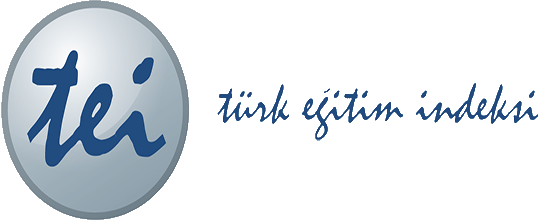Етика публікацій
Положення
про видавничу етику та недобросовісну видавничу практику електронного наукового періодичного видання " Експерт: парадигми юридичних наук та державного управління "
Редакційна колегія електронного наукового періодичного видання "Експерт: парадигми юридичних наук та державного управління", підтримує політику, спрямовану на дотримання принципів видавничої етики та і визнає, що відстеження дотримання принципів видавничої (редакційної) етики є однією з головних складових рецензування та видання.
1. Обов’язки головного редактора
1.1 Рішення по опублікуванню статті.
Головний редактор електронного наукового періодичного видання " Експерт: парадигми юридичних наук та державного управління " відповідає за ухвалення рішення про те, які з представлених в редакцію звидання робіт слід опублікувати. Це рішення має прийматися на основі перевірки достовірності роботи та її важливості для дослідників і читачів. Головний редактор може керуватися методичними рекомендаціями, розробленими редакційною колегією видання і такими юридичними вимогами як недопущення наклепу, порушення авторського права і плагіату. Також при ухваленні рішення до публікації головний редактор може радитися з членами редакційної колегії або рецензентами (або представниками науково-педагогічного колективу).
1.2 Справедливість.
Головний редактор електронного наукового періодичного видання " Експерт: парадигми юридичних наук та державного управління " , оцінює представлені роботи з їх інтелектуальним змістом, незважаючи на расу, стать, сексуальну орієнтацію, релігію, етнічне походження, громадянство або політичні погляди автора.
1.3 Конфіденційність.
Головний редактор електронного наукового періодичного видання "Експерт: парадигми юридичних наук та державного управління" , і співробітники редакційної колегії не повинні розкривати інформацію про представлені рукописи будь-кому іншому, за винятком автора, рецензентів, потенційних рецензентів, консультантів редакційної колегії, а також видавця.
1.4 Розголошення відомостей і конфлікт інтересів.
Відомості, що містяться в представленій статті, не повинні використовуватися в будь-яких власних роботах головного редактора і членів редакційної колегії без письмового дозволу автора. Конфіденційна інформація або ідеї, отримані при рецензуванні, повинні зберігатися в секреті і не використовуватися для отримання особистої вигоди. Головному редактору слід відмовитися від своєї участі у рецензуванні в разі, якщо присутній конфлікт інтересів, що виникають із конкуренції, співробітництва чи інших відносин з будь-ким з авторів, компаній або установ, що мають відношення до статті. Головному редактору слід вимагати від усіх авторів видання надавати відомості про відповідні конкуруючих інтересах і публікувати виправлення, якщо конфлікт інтересів був викритий після публікації. У разі необхідності, може виконуватися інша належна випадку дія, така як публікація спростування або вирази заклопотаності.
1.5 Вивчення скарг етичного характеру.
Головному редактору електронного наукового періодичного видання "Експерт: парадигми юридичних наук та державного управління" слід приймати розумно швидкі заходи при надходженні скарг етичного характеру відносно представленого рукопису або опублікованої статті, маючи контакт з редакцією, видавцем (або науково-педагогічним колективом).
2. Обов’язки рецензентів
2.1 Участь в рішеннях редколегії.
Рецензування допомагає головному редактору при ухваленні рішення про опублікування роботи, а через зв’язок редакції з автором, може також допомогти автору поліпшити його роботу.
2.2 Оперативність.
Кожен обраний рецензент, відчуває свою некомпетентність для рецензування наукового дослідження, описаного в рукописі, або знаючий, що його оперативне рецензування неможливо, повинен сповістити редактора і виключити себе з процесу рецензування.
2.3 Конфіденційність.
Кожний отриманий для рецензування рукопис повинен розглядатися як конфіденційний документ. Він не повинен показуватися або обговорюватися з іншими особами за винятком осіб, уповноважених редактором.
2.4 Розголошення відомостей і конфлікт інтересів.
Неопубліковані відомості, розголошені в представленій статті, не повинні використовуватися в будь-яких власних роботах рецензента без письмового дозволу автора. Конфіденційна інформація або ідеї, отримані при рецензуванні, повинні зберігатися в секреті і не використовуватися для отримання особистої вигоди. Рецензенту слід відмовитися від своєї участі у рецензуванні в разі, якщо присутній конфлікт інтересів, що виникає із конкуренції, співробітництва чи інших відносин з будь-ким з авторів, компаній або установ, що мають відношення до статті.
3. Обов’язки авторів
3.1 Оригінальність і плагіат.
Автори статті повинні гарантувати, що вони написали абсолютно оригінальну роботу, і якщо автори використовували роботи та / або слова інших авторів, це має бути відповідним чином відзначено посиланням або вказано в тексті. Плагіат має багато форм, від видавання чужої роботи за свою до копіювання або перефразувания істотних частин чужої роботи (без посилання на джерело), а також до заяви про свої права на результати, отримані в дослідженнях, виконаних іншими особами. Плагіат у всіх своїх формах є неетичною поведінкою при публікації та неприпустимий. Подання одного і того ж рукопису більш ніж в один журнал одночасно є неетичною поведінкою при публікації і неприпустимо. Автору не слід представляти для розгляду в іншому журналі вже опубліковану статтю. Необхідно 1076 „{належним чином визнавати роботи інших дослідників. Автори повинні давати посилання на публікації, які вплинули на зміст описуваної роботи.
3.2 Авторство роботи.
Авторство повинно обмежуватися тими особами, хто вніс значний вклад в концепцію, планування, виконання або інтерпретацію описуваного дослідження. Всі особи, які внесли значний вклад, повинні бути зазначені як співавтори. Якщо яка-небудь особа брало участь в якісь суттєвій частині проекту, то йому має бути виражена вдячність, або він повинен бути включений в список співавторів.
3.3 Розголошення відомостей і конфлікт інтересів.
Всі автори повинні розкривати у своїх рукописах будь-який фінансовий чи інший суттєвий конфлікт інтересів, який міг би бути розцінений як вплив на результат оцінки їх рукописів. Всі джерела фінансової підтримки проекту повинні бути розкриті.
3.4 Помилки в опублікованих роботах.
Якщо автор виявляє значну помилку чи неточність у своїй опублікованій роботі, його обов’язком є терміново сповістити головного редактора видання про це і співпрацювати з головним редактором для того, щоб опублікувати спростування або виправлення статті. Якщо головний редактор дізнається від третьої сторони про те, що опублікована робота містить значну помилку, обов'язком автора є термінове спростування або виправлення статті, або подання головному редактору докази правильності опублікованої роботи.
3.5 Виявлення плагіату.
Редакційна колегія електронного наукового періодичного видання " Експерт: парадигми юридичних наук та державного управління " бере на себе зобов’язання допомагати науковому співтовариству у всіх аспектах здійснення політики щодо дотримання видавничої етики, особливо у випадках підозри на дублююче уявлення статті або плагіат.










